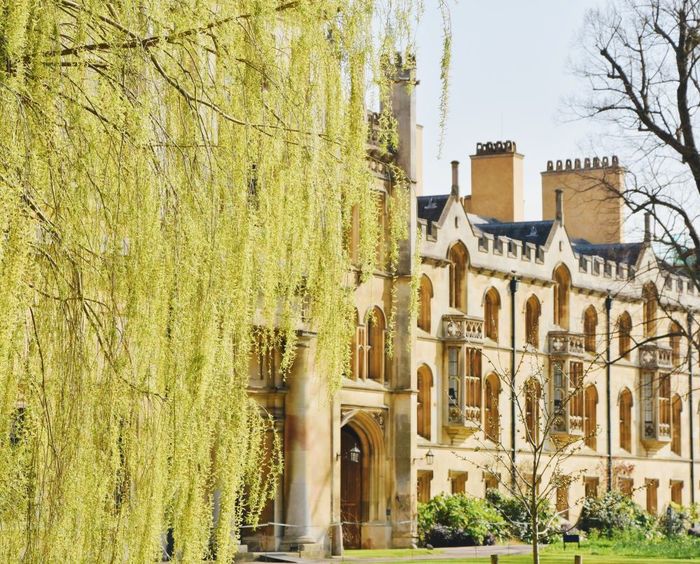Cambridge-led research into autism a ‘field in crisis’, BBC report finds
Research into autism at the University of Cambridge has faced considerable backlash due to ‘historic mistrust’

Cambridge-led research into autism is out of touch with the demands and requirements of the autistic community, according to a BBC Newsnight report. The report found that autism research at the University of Cambridge is a “field in crisis” that is “at a crossroads” with the autistic community.
The director of the University’s Autism Research Centre and fellow of Trinity College, Sir Simon Baron-Cohen, launched the UK’s largest-ever study into autism in 2021. The study, Spectrum 10K, was heralded as an “ambitious new research project” to better understand the genetics and biology underpinning autism. It asked 10,000 autistic people and their families to contribute DNA samples for analysis.
The project made clear that it was “opposed to eugenics or looking for a cure for preventing or eradicating autism itself”, understanding autism as “an example of neurodiversity”. Its stated aim was to better identify “support and treatment which alleviate unwanted symptoms” that cause autistic people distress.
Despite this intention, Spectrum 10K received mass public backlash and has been voluntarily paused.
Autistic communities have spoken out against Baron-Cohen’s research, which includes work on the “extreme male brain” theory of autism, which argues that autistic people can lack empathy. His account of the psychological basis of autism and male-female neurological divergence has been debated in the psychological community over claims of ‘neurosexism’. Baron-Cohen has said this is a misunderstanding of the theory and stated that he is “totally opposed to any form of sexism”.
The group Boycott Spectrum 10K have stated that there is a “historic mistrust” of Simon Baron-Cohen within autistic advocacy and academic communities. They questioned Baron Cohen’s suitability to the project, criticising him for saying that autistic people lack a “theory of mind” (the ability to infer the full range of mental states) which he describes as “one of the quintessential abilities that makes us human”. Baron-Cohen says that the suggestion that he believes autistic people lack features that make us human is “offensive and it does not reflect my views”.
Speaking to BBC Newsnight (21/03/23) Baron-Cohen admitted that he didn’t expect “thousands of people signing a petition to stop the study.”
Baron-Cohen said: “What we’ve learnt is when you do consultation with the autistic community for a big study, the consultation itself has to be proportionate. It just means that all of these different viewpoints should be kind of part of how the design of the research goes forward.”
The autistic community is said to favour research focused on addressing existing issues in the community– such as mental health, communication, social adjustments in housing or employment. Baron-Cohen told Newsnight “all these different viewpoints should be part of the design for how this research moves forward.”
Baron-Cohen told Varsity: “We are committed to conducting community engagement for all of our research projects, as we believe that autism research is enriched by co-production between scientists and the autism community.”
Spectrum 10k have recently launched a public consultation to address concerns and “make changes to the study based mainly on what autistic people say”.
Baron-Cohen also addressed concerns about the Spectrum 10k research programme. He told Varsity: “This is a genetic study of autism and co-occurring conditions, funded by the Wellcome Trust. When the study launched, whilst many autistic people supported the study, some had concerns that it could lead to eugenics and the development of a prenatal test for autism. We have acknowledged their concerns and made it clear on the Spectrum 10K website and the Autism Research Centre website that we oppose eugenics and oppose the development of a prenatal test for autism.”
He continued: “We paused the study in 2021 to conduct a large-scale consultation with the autism community to listen to all viewpoints. The NHS Ethics Committee have confirmed that the study continues to have ethical approval, and the University and the Wellcome Trust have expressed their continued support for the study and for the consultation. If after the consultation there are changes we can make to the study design that can reassure autistic people, we will submit an amendment to the Ethics Committee to change the study design. We expect to re-launch the study in September 2023.”
 News / Clare Hall spent over £500k opposing busway 24 December 2025
News / Clare Hall spent over £500k opposing busway 24 December 2025 Comment / The ‘class’ of Cambridge24 December 2025
Comment / The ‘class’ of Cambridge24 December 2025 News / Caius mourns its tree-mendous loss23 December 2025
News / Caius mourns its tree-mendous loss23 December 2025 Comment / League tables do more harm than good26 December 2025
Comment / League tables do more harm than good26 December 2025 News / Girton JCR publishes open letter expressing solidarity with Palestine25 December 2025
News / Girton JCR publishes open letter expressing solidarity with Palestine25 December 2025









